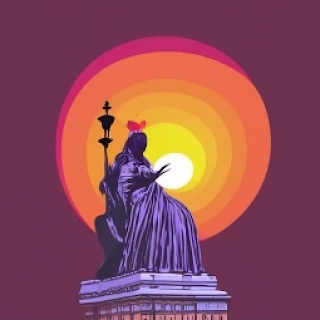Notes & Queries response: Why did whistling go out of fashion?

image generated by DreamStudio In June of 1970, as the Great British electorate lined-up outside polling stations to cement their collective opinion on the Wilson Government, another public-led sea change was in the works. Guided by the silent hand of mob rule it percolated through the honeycomb of the United Kingdom's porous island culture, eventually enacting a social change that was at once both innocuous and profound. To understand the roots of this cultural shift, we must travel further back in time to the previous year: Up until March 1969, the three television channels operating in the UK had been broadcast across a grab-bag of named frequencies. BBC One typically went out into the world on the back of the Gray Band, though the corporation would sometimes resort to the Innell Band during wet weather. Their independent rival – ITV – broadcast on the Stenhouse frequency. BBC Two, then the new kids on the block, used the Morley Band. The Ridgewell channel (that bankrupted its c





